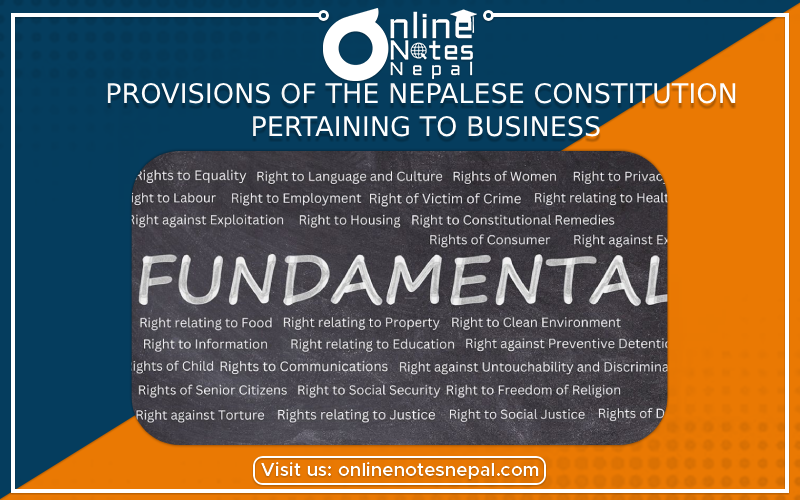Published by: Anu Poudeli
Published date: 02 Aug 2023

The Nepalese Constitution, which was approved on September 20, 2015, contains provisions that are applicable to enterprises in the country as of my last update in September 2021. These provisions deal with many aspects of commerce, industry, and economic activity. Here are some major business provisions in the Nepalese Constitution:
1.Economic Structure:
Article 15 of the Nepalese Constitution defines the country's economic system, stating that the country would have a mixed economy with both public and private sectors. This rule allows state-owned enterprises and private businesses to coexist.
2.Right to Property:
As a fundamental right, Article 16 of the Constitution ensures the right to property. This includes the ability to acquire, own, sell, transfer, and dispose of private property such as assets and enterprises. However, the state has the authority under the Constitution to place reasonable restrictions on the right to property in the interests of public welfare and land reform.
3.Right to Do Business:
Article 17 of the Constitution guarantees the freedom to engage in any occupation, profession, or business. This clause ensures citizens' ability to engage in a variety of economic activities without undue government intrusion.
4.Promotion of Cottage and Small Industries:
The state is directed by Article 51 of the Constitution to prioritize the promotion of cottage and small industries. This provision is intended to encourage and assist local entrepreneurs and small companies.
5.Promotion of Industry and Investment:
Article 51 further highlights the government's obligation to support industries and investments in the country in order to boost economic growth and development.
6.Economic Activities that Promote Social Justice:
The state shall establish policies and measures to achieve social fairness in economic operations, according to Article 52 of the Constitution. This involves initiatives to alleviate gaps and inequalities, as well as to ensure equal access to economic opportunities.
7.Provisions for Taxation:
The Nepalese Constitution provides provisions for taxation and income creation. While particular specifics may be established in other laws and regulations, the financial provisions of the Constitution lay the groundwork for taxation and economic policy.
It should be noted that these provisions are subject to alterations and amendments throughout time. As a result, it is always best to consult the most recent and up-to-date legal documents and resources for the most up-to-date information on Nepalese business rules and regulations. If you are doing business in Nepal or considering doing so, it is critical to check with legal experts or relevant government agencies to guarantee compliance with current laws and regulations.